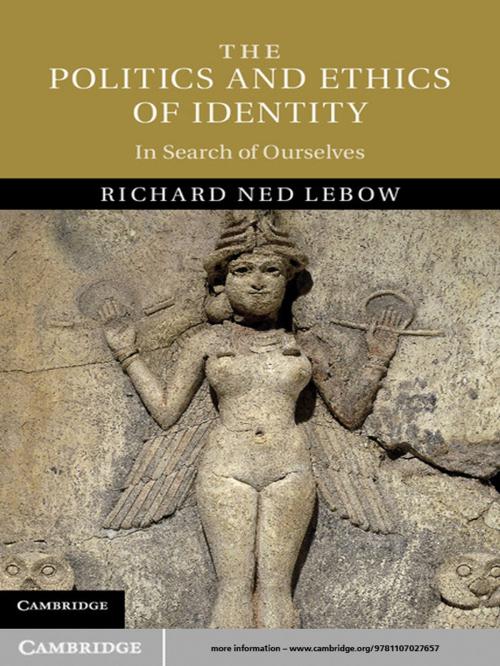The Politics and Ethics of Identity
In Search of Ourselves
Nonfiction, Social & Cultural Studies, Political Science, Politics, History & Theory, Health & Well Being, Psychology| Author: | Richard Ned Lebow | ISBN: | 9781139564830 |
| Publisher: | Cambridge University Press | Publication: | August 30, 2012 |
| Imprint: | Cambridge University Press | Language: | English |
| Author: | Richard Ned Lebow |
| ISBN: | 9781139564830 |
| Publisher: | Cambridge University Press |
| Publication: | August 30, 2012 |
| Imprint: | Cambridge University Press |
| Language: | English |
We are multiple, fragmented, and changing selves who, nevertheless, believe we have unique and consistent identities. What accounts for this illusion? Why has the problem of identity become so central in post-war scholarship, fiction, and the media? Following Hegel, Richard Ned Lebow contends that the defining psychological feature of modernity is the tension between our reflexive and social selves. To address this problem Westerners have developed four generic strategies of identity construction that are associated with four distinct political orientations. Lebow develops his arguments through comparative analysis of ancient and modern literary, philosophical, religious, and musical texts. He asks how we might come to terms with the fragmented and illusionary nature of our identities and explores some political and ethical implications of doing so.
We are multiple, fragmented, and changing selves who, nevertheless, believe we have unique and consistent identities. What accounts for this illusion? Why has the problem of identity become so central in post-war scholarship, fiction, and the media? Following Hegel, Richard Ned Lebow contends that the defining psychological feature of modernity is the tension between our reflexive and social selves. To address this problem Westerners have developed four generic strategies of identity construction that are associated with four distinct political orientations. Lebow develops his arguments through comparative analysis of ancient and modern literary, philosophical, religious, and musical texts. He asks how we might come to terms with the fragmented and illusionary nature of our identities and explores some political and ethical implications of doing so.















